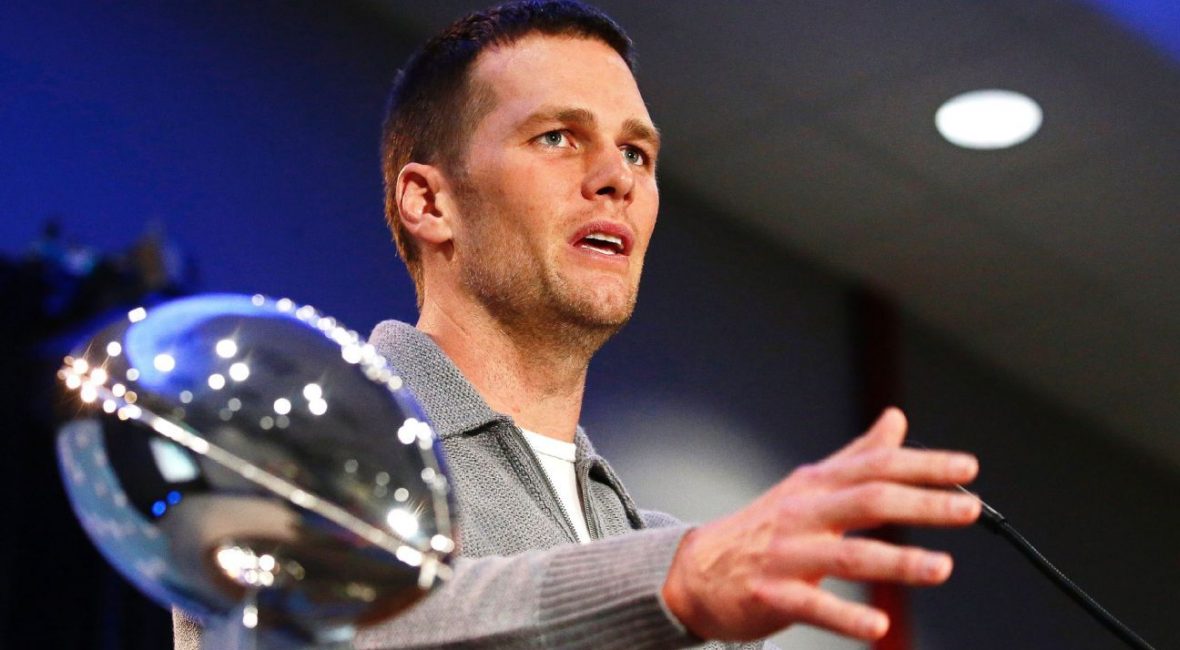Tom Brady's passion comes through with talk of 'ambassador' of health

FOXBOROUGH, Mass. — New England Patriots quarterback Tom Brady was a guest of Peter King’s two-part podcast on TheMMQB.com this week. Brady detailed the Patriots’ thrilling comeback in Super Bowl LI while also touching on how he tries to live his life on a daily basis. In addition, Brady was a guest on PFT Live with Mike Florio.
There was a common thread that stood out in the interviews, and it was how passionate Brady sounded as he was asked about health/wellness and what he’s done to play at a high level into his late 30s.
“Hopefully I can be a real ambassador for change in this area,” Brady said on PFT Live. “Outside of playing football, the one thing I love to do is to prepare for it.”
Brady predicted that in 5-10 years, many players and teams will be doing something similar.
The essence of Brady’s approach is to focus on pliability, as he used the examples of a demolition derby and car crash to explain how he prepares his body to absorb those impacts, and thus recover quicker from them to be available for the team the next week.
King put the podcasts into words in two pieces on TheMMQB.com — recapping the comeback of Super Bowl LI, and then focusing more on bigger-picture topics — but for those who have the time, there is something different about hearing Brady talk about the topics (Part 1 and Part 2) rather than simply reading his words. It was similar to Brady’s weekly in-season interviews on sports radio WEEI’s “Kirk and Callahan Show” (and as expansive, if not more).
In addition to Brady’s passion and voice inflection when speaking about being an ambassador, a few things stood out to me:
-
Per King, the Friday before the Super Bowl, normally reliable center David Andrews snapped the ball over Brady’s head when practicing the direct-snap 2-point conversion play that RB James White scored on to help the Patriots close to 28-20.
-
When the possibility of Brady being the best quarterback of all time, and how he wants to be remembered, was discussed, he said on PFT Live, “None of those things have ever mattered to me. It’s hard for those things to even take up any space in my mind. They’ve never been of significance to me.”
-
Brady has watched the coaches’ copy of the Super Bowl, but not the TV broadcast.
-
Brady touched on how everything centers around the game for him. “Football, to me is more than just a sport. It has become my life,” he told King.
-
Brady spent five days at home before leaving for Montana, which was primarily to make sure his body responded well from a physical Super Bowl. “I have zero pain,” Brady told King.
-
Brady told King he hopes to play into his mid-40s, while acknowledging that “a lot of things need to go your way” in a physical sport like football for that to happen. As for what will happen when he gets to his mid-40s, Brady said, “If I’m still feeling like I’m feeling today, who knows?”
-
This is a sweet spot for Brady, who feels he’s hit the perfect mix between experience and health. “Doing it when you’ve had the mental experience to be able to play for as long as I’ve had, and my body still feels like I’m in my 20s; I have the answers to the test now,” he told King. “You can’t surprise me on defense. I’ve just seen it all. I’ve been able to process 261 games, I’ve played them all. … There was a time when quarterbacking was really hard for me because you didn’t know what to do. Now, finally, you get to a point where you really know what to do. I don’t want to stop now.”
-
As for his approach on handling criticism, Brady told King, “What I’ve learned from myself is I don’t want to give my power away to other people by letting my own emotions be subjected to what their thoughts or opinions are. So if someone calls me something, that’s their problem. It’s not my problem. I’m not going to give away my power. You can call me an a– and I’m going to smile at you probably. I’m not going to say ‘You’re an a–’ because that person is [then] controlling me with what their thoughts and actions are.”




